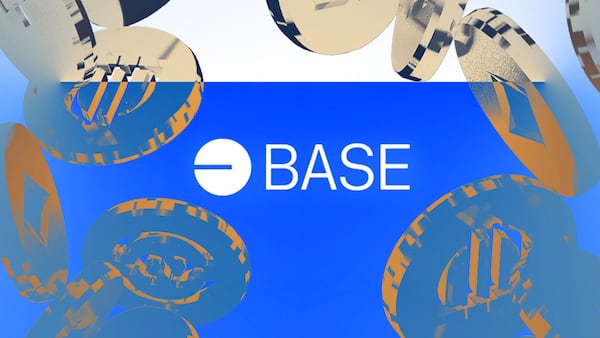- Coinbase has moved half its validators to the Nethermind software.
- The change could save Ethereum in the event of a critical bug.
- It’s the latest victory for a two-month public awareness campaign.
Crypto exchange Coinbase has moved half of its Ethereum validators to new software, a decision that could save the blockchain in the event of an unlikely but catastrophic bug.
It’s the latest victory in a two-month pressure campaign that has convinced some of the largest companies in Ethereum to switch from Geth.
Half of Coinbase’s validators are now running on software from Nethermind, the exchange announced Thursday.
It’s welcome news for the blockchain, which has faced stiffer competition this year as well as increased scrutiny from the Securities and Exchange Commission.
But as publicly available data is limited, it’s not yet certain whether a potential crisis has been averted.
“While Coinbase is probably the largest single node operator on the network, and it’s a huge victory, it’s not enough,” Jasper, a longtime, pseudonymous contributor to liquid staking protocol Rocket Pool, told DL News.
Despite a much-lauded upgrade on March 13, Ether has lagged other top cryptocurrencies this year as Bitcoin enjoys massive ETF-driven inflows and as Solana rides a boom in memecoin trading.
Previously, all of Coinbase’s validators were running on Geth, software that dominates the market for execution clients, which handle transactions as well as the deployment and execution of smart contracts on Etheruem.
Coinbase committed to the change in February. Later this year it will begin using Erigon software as well, the exchange said at the time.
In the eyes of some, the public awareness campaign is on the cusp of saving Ethereum.
That’s because Geth’s market share may have fallen below a critical threshold.
When more than two-thirds of Etheruem validators are running a single execution client, a bug in that client could set off a series of events leading to a catastrophic split in the chain — one that could destroy billions in Ether and set off a contentious debate with little precedent in the blockchain’s history.
After Thursday’s announcement, Geth controls just under two-thirds of the execution client market, according to one estimate.
Still, there are massive holes in the data and it is possible Geth still controls as much as 73% of the market.
“There’s a chance that with just Coinbase switching half their validators, we’re under that 66% threshold,” Jasper said. “But I’d rather us get to a point where we can be like, ‘OK, even if we’re wrong by 15%, we’re still OK.’ And we’re not there yet.”
Supermajority risk
To discourage overreliance on a single piece of software, Ethereum was designed such that it would split in two if client software used by more than two-thirds of Ethereum’s validators went offline.
Furthermore, the stakers running the supermajority client would lose their Ether.
“Having many independently developed and maintained clients is vital for the health of a decentralised network,” Ethereum’s community-run website explains.
Nevertheless, Geth has long dominated the market for execution clients, which handle transactions as well as the deployment and execution of smart contracts.
In late January, 84% of validators were using Geth, according to an estimate using data gathered by pseudonymous developer Sonic.
That began to change shortly thereafter.
That’s because a pair of Geth competitors, Besu and Nethermind, suffered bugs that temporarily forced them offline.
“When the first one went offline, everybody was like, ‘Oh, a huge, client-wide bug, what an anomaly,’” Nixo Rokish, head of EthStaker, an educational resource for Ethereum stakers, told DL News at the time.
“And then the second went down, and it starts to look like falling dominoes. And if that third domino is Geth … that is a huge fucking deal if in another month, Geth goes down.”
The fear isn’t unreasonable: Bugs have been found in Geth as well.
In 2020, several major DeFi applications went offline after developers at Optimism intentionally triggered a Geth bug that had been patched several months earlier, not realising many validators hadn’t updated their software since the fix. And in 2021, software developer Guido Vranken found a critical bug in Geth, which was promptly patched.
But Geth bugs have yet to be exploited by bad actors, Justin Drake, a researcher at the Ethereum Foundation, previously told DL News.
After the Nethermind bug on January 21, several crypto influencers took to social media to call on organisations to ditch Geth before it too suffered a bug or went offline due to an exploit.
Promises
Since then, Geth market share plummeted as companies including Allnodes, P2P, and Ether.Fi announced they had switched to competing software.
But the data is unreliable.
It relies on the assumption companies are honest about the software they use.
Moreover, of the 979,000-plus validators, only 56% have reported what execution client they use.
Attention has now turned to Lido, a liquid staking protocol. Its next quarterly report could show that the supermajority risk has been averted, according to some observers.
Meanwhile, some large companies have stayed mum regarding their use of execution clients, including the world’s largest crypto exchange, Binance.
“The centralised exchanges still have a lot of work to do,” Jasper said.
Aleks Gilbert is DL News’ New York-based DeFi correspondent. You can contact him at aleks@dlnews.com.




